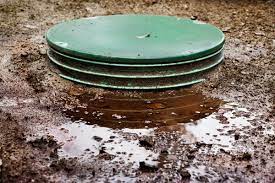Septic tank standards and regulations must be followed when it comes to wastewater management for the sake of the surrounding community and the environment. Septic tank regulations are crucial for homes, as improper installation can lead to severe fines and penalties. In this extensive piece, we’ll look at the penalty for having an illegal septic system, how to report one, and the laws that control their use in Georgia and nationwide.
What Is an Illegal Septic System?
An illegal septic system is installed or operated without the required authorizations or in contravention of the relevant norms and regulations. Illegal septic systems include untreated wastewater released into water bodies or onto land, poorly maintained or failed septic systems, and septic systems installed without the local health department’s approval.
The Benefits of Septic System Guidelines
Household wastewater is managed, in large part, by septic systems. They offer a practical and eco-friendly way to dispose of wastewater and sewage when installed and maintained correctly. Septic systems that malfunction or are installed without the necessary licenses pose significant environmental and public health threats.
The federal and state governments have implemented strict guidelines and regulations about the installation, operation, and maintenance of septic systems as a preventive measure against potential risks. In addition to preventing fines and penalties for non-compliance, following these septic tank regulations is crucial for safeguarding the environment.
What Is the Penalty for Illegal Septic System Use?
Unauthorized septic system use can lead to various penalties, depending on local laws, the severity of the offense, and environmental impact. But typical sanctions for having an unauthorized septic system could be as follows:
Penalties
Unauthorized septic system usage is often subject to frequent sanctions by environmental organizations or local government bodies, including fines. Depending on the area, the penalties might range from hundreds to thousands of dollars.
Illegal septic system operation can result in increased costs, as fines can be imposed daily until the infraction is rectified. It is far more economical to install and operate a septic system following laws rather than risk paying fines.
Penalty for Illegal Septic System in Georgia and Other States: Examples
Texas: Until the system is compliant, fines for illegal septic systems for single-family homes in Texas cannot be more than $100 per day.
California: Fines for installing an unauthorized septic system range from $200 for initial infractions to $10,000 for severe or recurring infractions. There may also be further consequences, such as misdemeanor charges or mandatory compliance orders.
Georgia: Each county may have a different penalty for having an unauthorized septic system. Coweta County, for instance, charges a $1000 fine for each day of noncompliance.
Pennsylvania: There are $500 to $5,000 in fines for installing an unauthorized septic system there.
The gravity of the infraction, such as whether it endangers the environment or public health, will also affect the sanctions for installing an unauthorized septic system.
Costs and Damages of Remediation
Further fines may be applied if an unauthorized septic system endangers public health or the environment. If a homeowner’s illegal system contaminates water supplies or harms neighboring ecosystems, they may be held financially responsible for any damages incurred. Furthermore, they can also be responsible for the high cost of remediation methods.
Court Cases and Prison Time
In severe circumstances, using an unauthorized septic system could result in legal action against the homeowner and possibly jail time. If the infraction is serious and/or persistent despite previous warnings or citations, this is more likely to happen.
Legal action may also be taken if the unauthorized system is deployed without the necessary approvals or inspections. The homeowner may also be responsible for paying court costs and legal fees if they file a lawsuit.
The System Requires Upgrades or Repairs
To comply with regulations, property owners might need to modify or fix their septic systems. This may mean hiring professionals, obtaining licenses, and monitoring compliance with the law. Homeowners may have to construct a brand-new septic system entirely if the system is beyond repair, which can be quite expensive.
Orders to Cease
Local authorities can issue a cease-and-desist order, requiring the immediate termination of an illegal septic system upon its discovery. The homeowner will need to devise alternative strategies for managing wastewater until the infraction is resolved.
Unable to use your septic system can be frustrating, especially if it’s your sole method of managing wastewater. It’s critical to move swiftly in response to a cease-and-desist order to minimize additional consequences and any health risks.
Property Transfer and Sale Prohibited
A property with an illegal septic system may not be able to be sold or transferred unless the violation is fixed and the system conforms to the rules. Even if there might not be a direct punishment, the property owner may suffer serious financial consequences as a result.
How to Report Illegal Septic System
You may need to know how to report an illegal septic system for a variety of reasons. Tenants or neighbors with an unsafe septic system or a sewage system failure may experience flooding on their property. It’s critical to notify the relevant authorities if you believe that an unauthorized septic system has been installed or is being used in your neighborhood. This ensures adherence to the correct regulations, aiding in environmental protection and public health. The procedures to report an unauthorized septic system are as follows:
Step 1: Get Information
Get as much information as you can on the alleged unlawful septic system before reporting the problem.
Step 2: Speak with the Health Department in Your Area
Septic system regulations in your community are often handled by your local health department. Get in touch with the neighborhood health offices to report any suspected illegal septic systems. The contact details for your neighborhood health department can be obtained through their website or a quick internet search.
Provide as much information as you can when reporting the problem, such as the location of the alleged illegal septic system, any obvious indications of noncompliance, and any photos or videos that may support your claim. The health department or local government may request additional information or require a formal written complaint.
Step 3: Get in touch with the EPA, the Environmental Protection Agency
You have the option to submit the suspected illegal septic system to the EPA if the problem remains unresolved locally or poses a serious risk to the environment or public health. On its website, the EPA offers a method for reporting environmental infractions related to on-site sewage systems.
Make sure your report is submitted with all the pertinent data and supporting documentation you have collected. After reviewing your report, the EPA will decide if more research or enforcement action is necessary.
Step 4: Follow Up
Contact the EPA or the local health agency again for further inquire about the status of your report after reporting the alleged illegal septic system. They might be able to give you updates on the probe or any enforcement measures the local permitting authority has taken in reaction to your report.
Recall that reporting an illegal or malfunctioning septic system is crucial for safeguarding the environment, public health, and property owners’ compliance with septic system laws and regulations. You’re making the community safer and healthier by taking the time to report these problems.
Penalty for Illegal Septic System: FAQs
What is Georgia’s septic tank law?
For single-family residences with one, two, three, or four bedrooms, the minimum liquid capacity of a septic tank must be at least one thousand gallons, regardless of the tank’s structure. The capacity of the septic tank will rise by 250 gallons for every extra bedroom beyond four.
What does a Georgia septic inspection cost?
The cost of a septic check might vary from $400 to $600 based on accessibility and other considerations. It’s advisable to check if your system meets the latest code standards while a qualified inspector is on duty.
For what duration is a Georgia septic permit valid?
As per Chapter 511-3-1-.03 of the Rules and Regulations for the State of Georgia, onsite sewage management system licenses are valid for 12 months from the date of issuance (3).
In Georgia, is permission required for the installation of a septic tank?
Which laws govern the use of septic systems? Before building a house or installing or repairing a septic system, the state mandates that the soil be inspected by the local health department and that a permit be obtained.
Penalty for Illegal Septic System: Conclusion
Illegal septic system installations can also result in expensive and inconvenient consequences. For homeowners, breaking rules can have serious financial repercussions, ranging from penalties and legal action to remedial expenses and also cease-and-desist orders.
Furthermore, to prevent these fines, it’s crucial to maintain your septic system correctly and to abide by all requirements. This also ensures compliance with laws and regulations, preventing potential legal issues and health risks. Maintain the legality and optimal operation of your septic system to safeguard your family’s and also your neighborhood’s safety.



